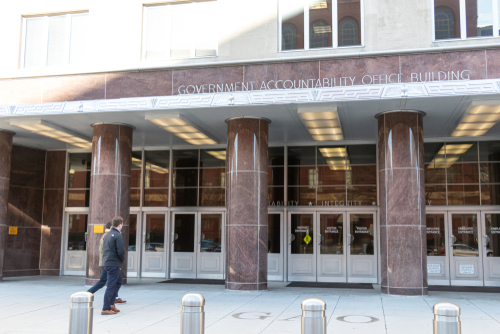
According to a recent report by the U.S. Government Accountability Office, the Nuclear Regulatory Commission has failed to take steps that would strengthen its security requirements for radioactive materials.
The GAO noted that only a small amount of radioactive material is required for terrorists to make a dirty bomb. Because of that, the GAO said it has made 18 recommendations to the NRC that would strengthen security around radioactive materials. However, less than half of those recommendations have been implemented. The GAO asked Congress to consider directing NRC to strengthen its requirements.
In its Sept. 30 report, the GAO said a number of agencies oversee radiological security, and many share generally similar assessments of radiological threats and vulnerabilities. But the agencies differ on the socioeconomic consequences in their assessment of risk, which the GAO says affects their security activities.
While the National Nuclear Security Administration (NNSA) and the U.S. Department of Homeland Security’s Countering Weapons of Mass Destruction (CWMD) Office both pursue security activities based on socioeconomic risks of a dirty bomb, the NRC does not, the GAO said. Instead, the GAO said, the NRC considers certain fatalities and health effects as consequences of concern when establishing regulations. These differing views of a dirty bomb’s consequences have resulted in NNSA and CWMD designing programs to secure radioactive materials that NRC regulations leave vulnerable.
Between 2012 and 2024, the NRC has implemented only seven of the recommendations made by the GAO to reduce the risk of a dirty bomb, while the NNSA, CWMD and the U.S. Customs and Border Protection have implemented almost all of the GAO’s recommendations. Specifically, the NRC has not taken action to incorporate socioeconomic consequences into its regulations, and had not strengthened the security of certain radioactive materials not subject to NRC’s enhanced security requirements, like centrally tracking category 3 sources and licenses. In June of this year, the NRC confirmed nearly all of the action to implement the recommendation had ceased.
The GAO asked Congress to consider directing the NRC to incorporate those socioeconomic consequences into decision-making and regulations, and to require that all category 3 radioactive materials and licenses be centrally tracked and subject to stronger verification measures.

